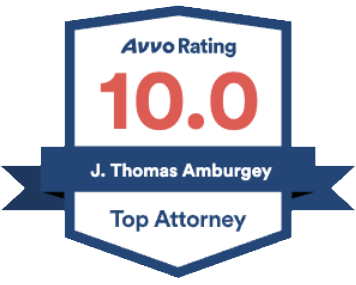Assault with a Deadly Weapon in North Carolina
When a weapon is involved in an altercation, the consequences escalate fast. Assault with a deadly weapon is a felony offense in North Carolina and can carry significant prison time depending on the circumstances. If you’ve been accused of assault with a deadly weapon, it's essential to work with a Board Certified Criminal Law Specialist who knows how to dismantle the State’s case from the inside out.
What Constitutes a Deadly Weapon?
North Carolina law defines a deadly weapon broadly. It doesn’t have to be a gun or a knife—any object that could cause death or serious bodily harm may qualify, including:
- Firearms
- Knives
- Blunt objects (e.g., bats, bottles)
- Vehicles
- Tools or improvised objects
The intent and context of use matter. A pocketknife in your bag is not automatically a deadly weapon—but using it in a threatening or violent way could trigger serious felony charges.
Common Charges for Assault with a Deadly Weapon
There are several variations of this charge under North Carolina law:
- Assault with a deadly weapon with intent to kill
- Assault with a deadly weapon inflicting serious injury
- Assault with a deadly weapon with intent to kill inflicting serious injury
These offenses range from Class E to Class C felonies, depending on whether the assault caused injury and whether the State believes there was intent to kill.
Penalties and Real-World Stakes
- Assault with a deadly weapon with intent to kill inflicting serious injury (Class C felony): 44 to 231 months
- Assault with a deadly weapon with intent to kill (Class E felony): 15 to 88 months
- Assault with a deadly weapon inflicting serious injury (Class E felony): 15 to 88 months
Incarceration is only part of the damage. Convictions for violent felonies can mean a permanent record, loss of firearm rights, difficulty finding employment, and exclusion from housing and loan opportunities.
State vs. Federal Jurisdiction
Most assault with a deadly weapon charges are handled at the state level, but federal prosecution is possible when the offense occurs on federal land or involves a firearm regulated under federal law. Assault involving drug trafficking, interstate violence, or a federal employee could lead to prosecution in U.S. District Court. Thomas Amburgey's extensive state trial experience is foundational to his expansion into federal criminal defense, positioning him to defend clients facing charges in both jurisdictions.
Building a Strong Defense
Cases involving assault with a deadly weapon often hinge on:
- Whether the object qualifies as a deadly weapon
- The nature and severity of the injury
- Witness credibility
- Whether there was intent to kill or reckless behavior
- Self-defense or defense of others
Thomas Amburgey leverages his experience as a former prosecutor and his Board Certification in State Criminal Law to expose weaknesses in the prosecution's case and advocate for charge reductions or acquittals.
What Clients Should Know
- Assault with a deadly weapon charges range from serious felonies to life-altering penalties
- Any object can be considered a deadly weapon
- State and federal prosecution may apply
- Proven courtroom experience is essential to your defense
When the Stakes Are High, So Should Be Your Standards
A conviction for assault with a deadly weapon can change everything. But so can a skilled defense. Thomas Amburgey has tried hundreds of cases, including over 70 in front of a jury. With credentials that include Board Certification and recognition by Best Lawyers and Super Lawyers, he brings elite skill to your corner.
Call today for a confidential consultation.
Recent Articles


CERTIFIED LEGAL SPECIALIST

THE LEGAL ELITE

Best Lawyers in America





